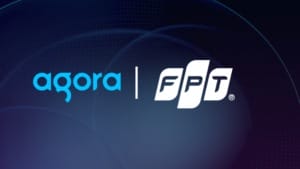Alibaba Cloud supports launch of new AISG language model for Southeast Asia
AI Singapore and Alibaba Cloud release Qwen-SEA-LION-v4, a multilingual Southeast Asia-focused language model built on Qwen3-32B.

Alibaba Cloud has announced its support for the release of Qwen-SEA-LION-v4, a new large language model developed by AI Singapore to meet the linguistic, cultural and commercial needs of Southeast Asia. Built on Alibaba’s Qwen3-32B foundation model, the latest version marks a step forward in AISG’s efforts to expand access to AI systems designed for regional users.
Qwen-SEA-LION-v4 improves multilingual accuracy and cultural understanding across Southeast Asian languages. It is also efficient enough to run on a consumer laptop with 32GB of RAM. According to AISG, it now ranks first on the SEA-HELM leaderboard for open-source models under 200 billion parameters, driven by enhancements in reasoning, language support and long-context processing.
To strengthen its multilingual base, the model builds on Qwen3-32B, which was trained on 36 trillion tokens across 119 languages and dialects. AISG further trained the system on more than 100 billion Southeast Asian language tokens. This additional training aims to deepen its understanding of local expressions, conversational styles and regional knowledge domains.
Dr Leslie Teo, Senior Director of AI Products at AI Singapore, said the collaboration signals a shared commitment to developing AI that better reflects the region. “Our collaboration with Alibaba on Qwen-SEA-LION-v4 is an important milestone in advancing AI inclusivity and to make it more representative of Southeast Asia,” he said. “It embodies our shared vision of accelerating AI innovation across the region and ensuring that developers, enterprises, and public institutions have access to AI that is open, affordable, and locally relevant, and is designed to truly understand the languages, cultures, and communities of this region.”
Hon Keat Choong, General Manager of Singapore at Alibaba Cloud Intelligence, highlighted the role of joint development in pushing AI capabilities forward. “Through this partnership with AI Singapore, we are proud to see the Qwen foundation model empowering the next wave of AI innovation in Southeast Asia. By combining our model’s multilingual and reasoning strengths with AI Singapore’s deep regional expertise, Qwen-SEA-LION-v4 demonstrates how open collaboration can make advanced AI more inclusive and locally relevant. We look forward to enabling more developers, enterprises and public-sector partners to build applications that truly understand the languages and cultures of this region,” he said.
Addressing regional language gaps
Southeast Asia is home to more than 1,200 languages, yet many commercial AI models remain skewed towards English. This creates barriers for users and organisations that require accurate responses in regional languages or mixed-language settings.
The Qwen3 base model already offers wider language coverage than many contemporary systems, due to its large and diverse pre-training dataset. To further close gaps in low-resource languages, the Qwen team expanded translation and cross-lingual tasks during post-training. The aim is to help the model perform better on code-switched dialogue, informal text and mixed English-local patterns that are common across Southeast Asia.
Through the collaboration, Alibaba provided the Qwen3-32B foundation model and technical support for advanced post-training, while AI Singapore contributed region-specific data curation, optimisation and evaluation across multiple Southeast Asian languages.
Key upgrades in Qwen-SEA-LION-v4
The latest version introduces several changes aimed at improving both performance and accessibility for developers. Qwen-SEA-LION-v4 now uses byte-pair encoding instead of the earlier sentence-piece tokenizer, which results in more efficient and accurate multilingual text processing.
AISG also expanded its training datasets to include more content from Burmese, Filipino, Indonesian, Malay, Tamil, Thai and Vietnamese sources. This aims to improve cultural fluency and contextual accuracy in these languages.
The model supports a native 32k-token context window, enabling document-level reasoning and extended interactions. It is also available in 4-bit and 8-bit quantised formats, making it easier to deploy on local infrastructure with reduced hardware requirements.
Qwen-SEA-LION-v4 is available for free download from the AI Singapore website and Hugging Face.
















